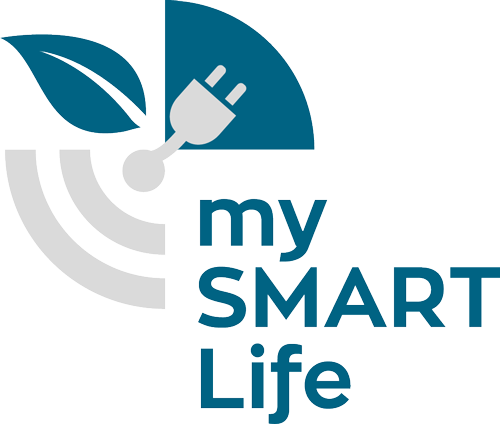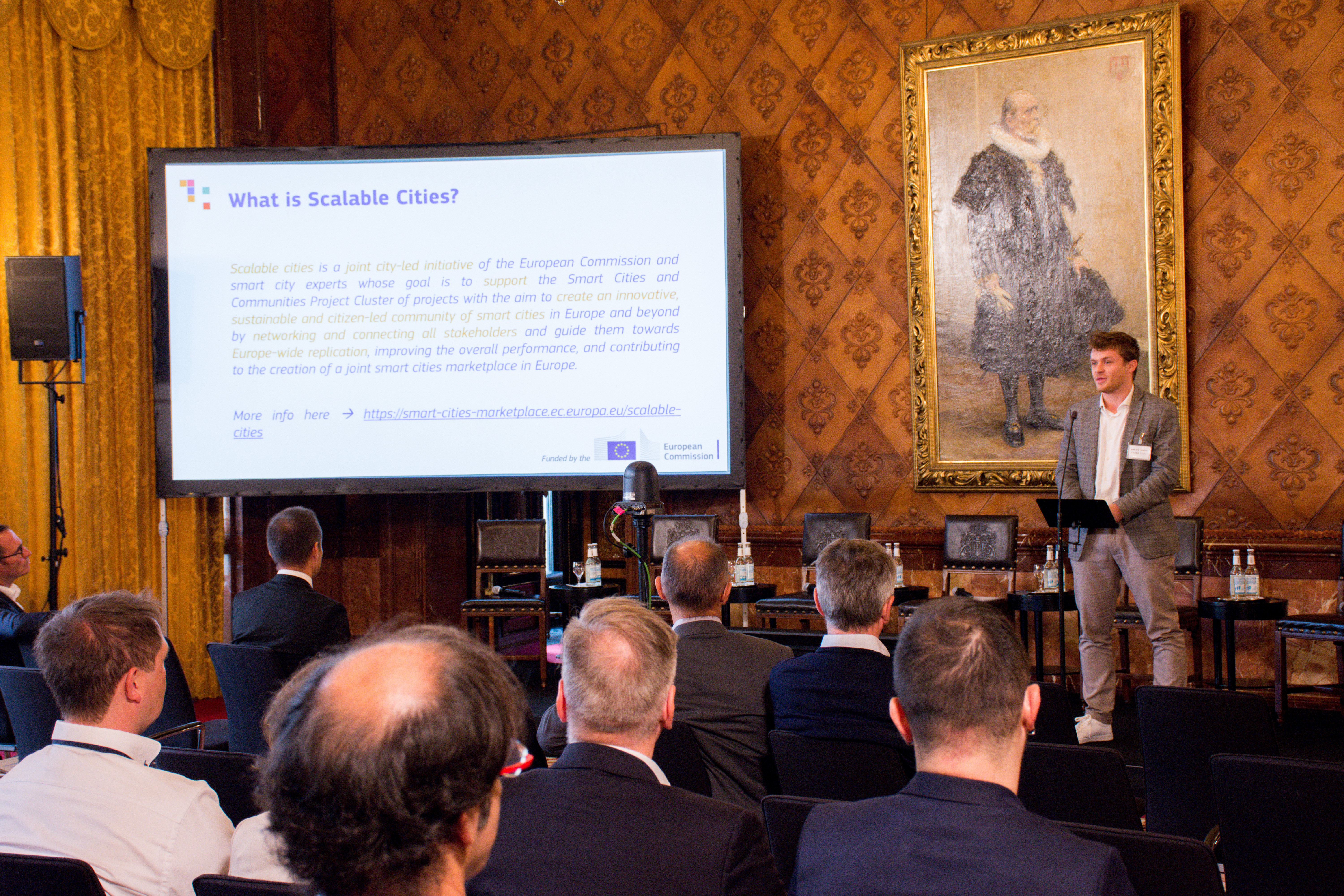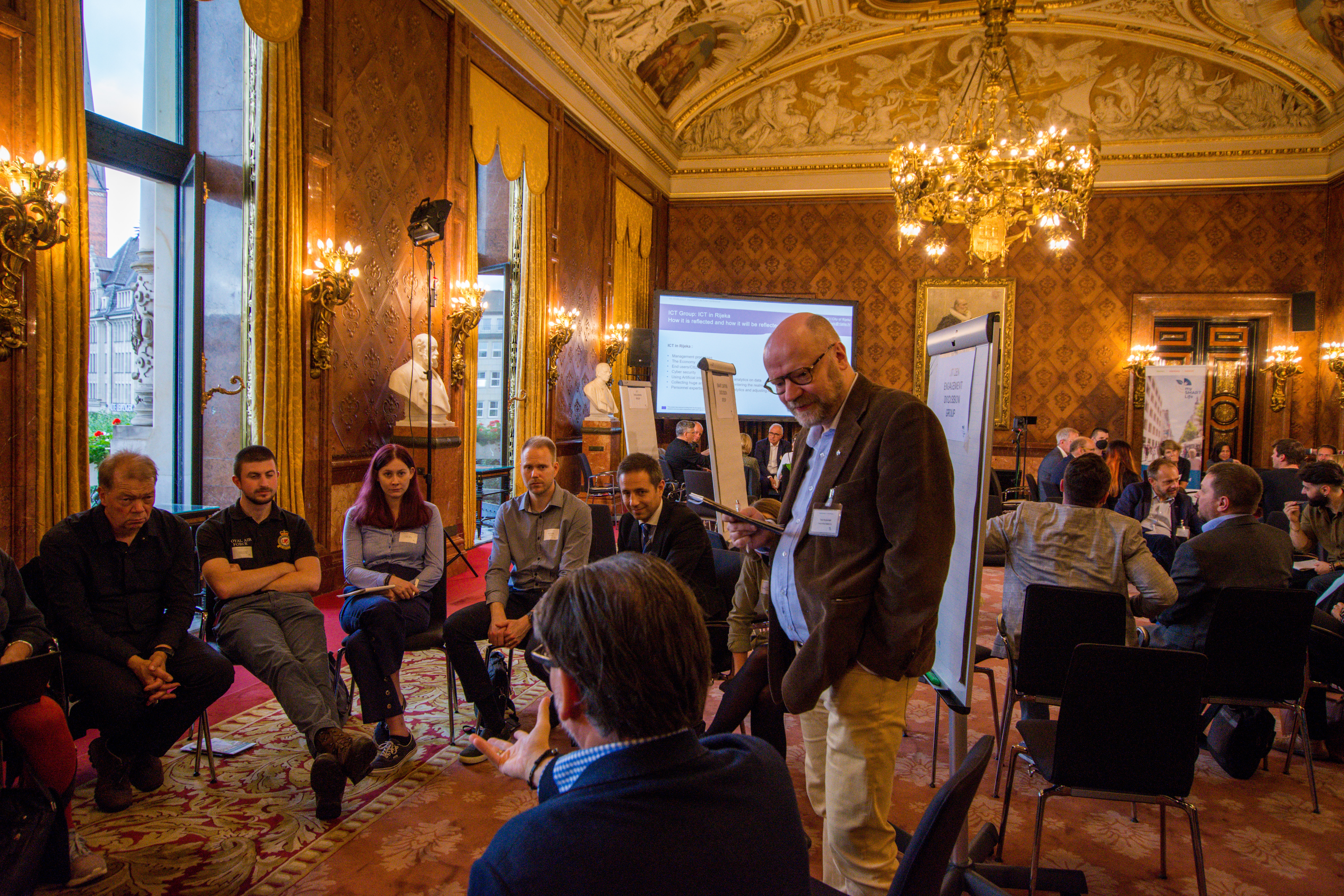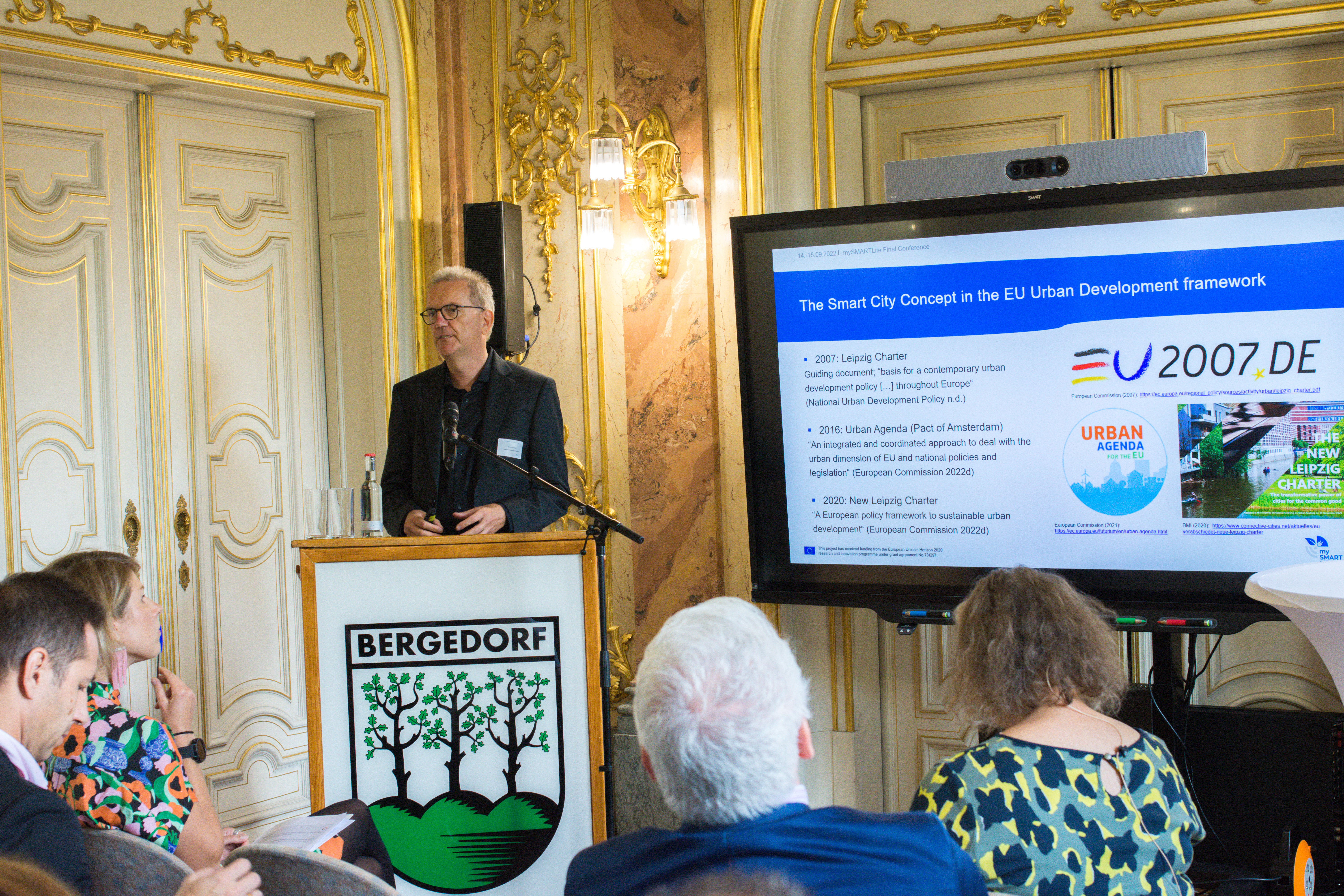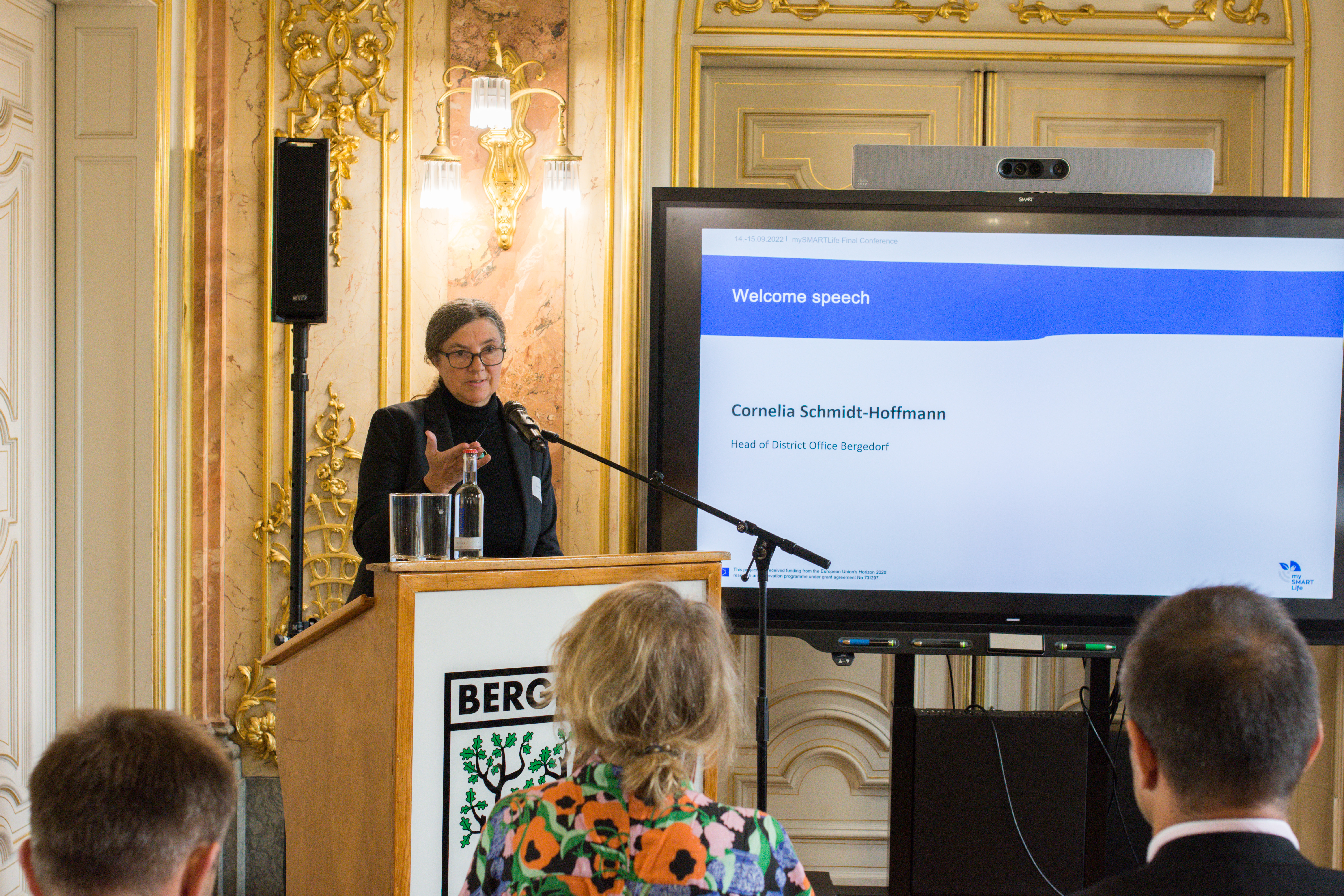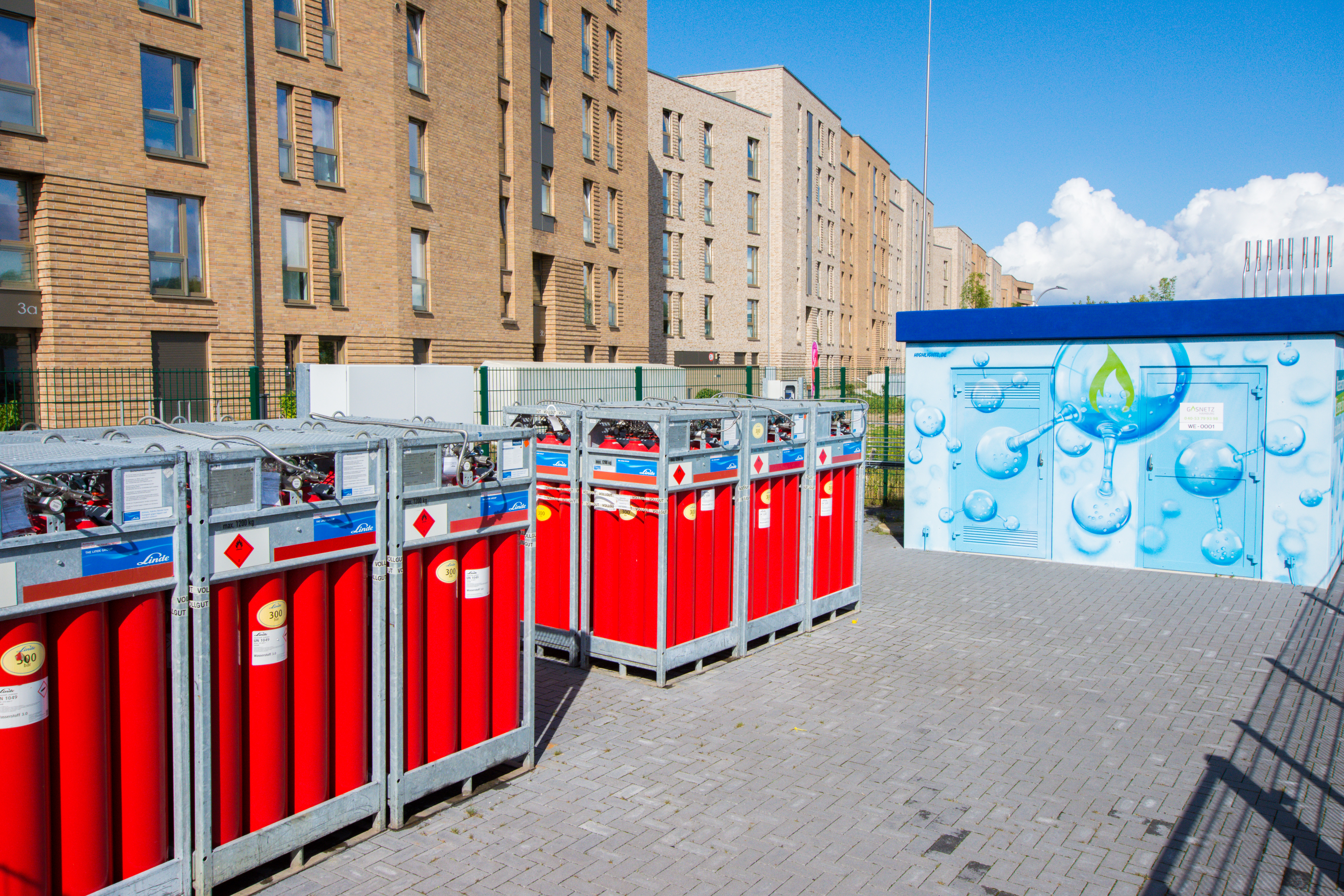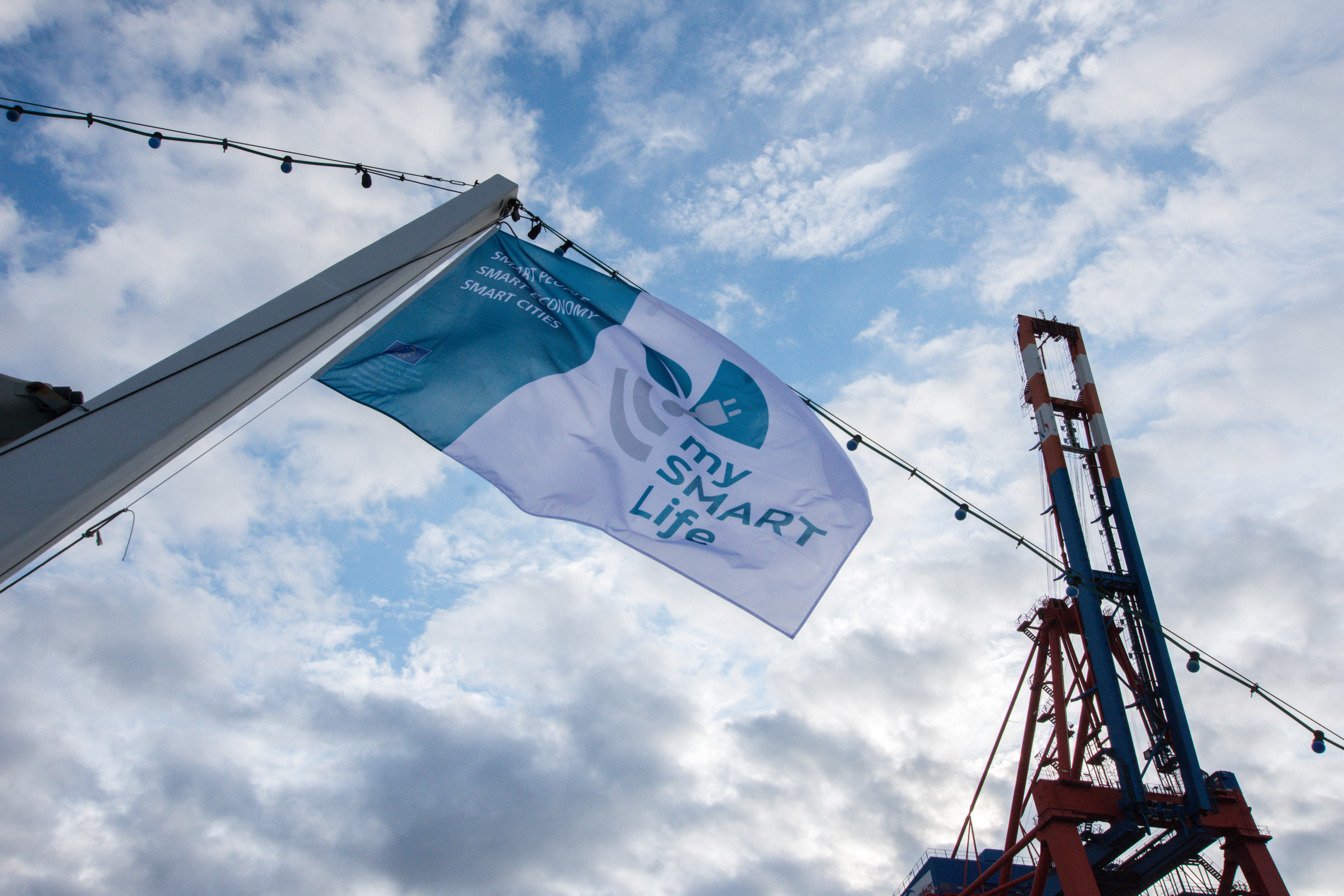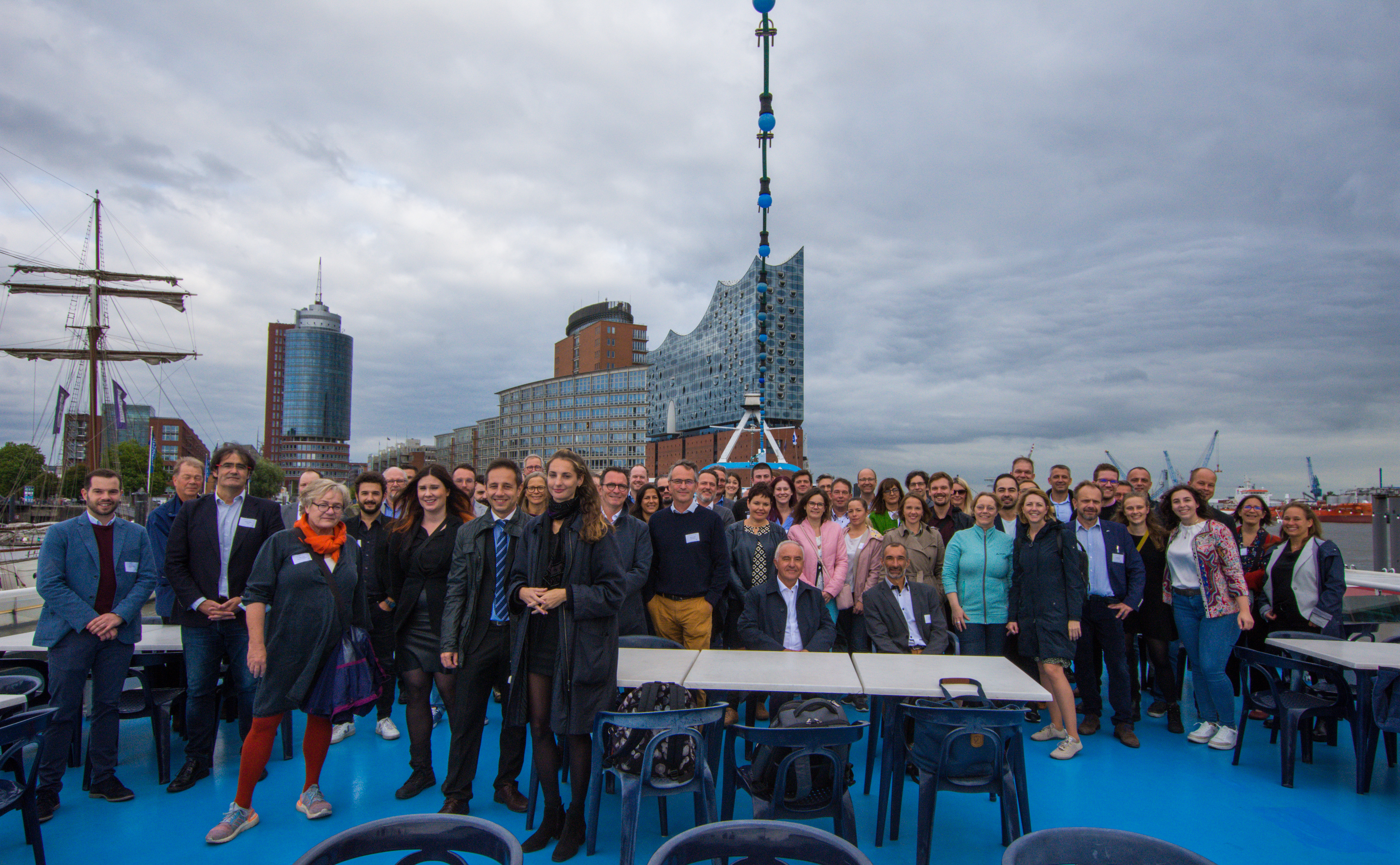mySMARTLife celebrated its successful ending with its Final Conference "Smart People - Smart Economy - Smart Cities" on 14-15 September 2022 in Hamburg, Germany.
After almost six years of project duration and joint efforts of 27 partners from 6 countries to make sustainable cities with smart people and a smart economy a reality, mySMARTLife is coming to an end. Now it is time to present the results to the broad public to foster replication with the help of the new methods and innovative solutions developed.
mySMARTLife’s key activities were carried out in the three Lighthouse Cities Nantes (France), Hamburg (Germany) and Helsinki (Finland). Three Follower Cities – Bydgoszcz (Poland), Rijeka (Croatia) and Palencia (Spain) – have directly learnt from these experiences and have set up their own urban transformation plans.
“The mySMARTLife consortium has worked hard to accomplish ambitious targets in terms of energy and emissions savings through the implementation of innovative measures. As a large demonstration project, mySMARTLife has fostered the creation of smart districts, considering energy efficiency measures to reduce energy demand, greenhouse gases and pollutants emissions, together with the integration of renewable energy sources and energy storage in energy grids. Clean mobility solutions were also implemented across the cities. The great results achieved were possible due to the strong collaboration among the Lighthouse and Follower Cities, supported by all the technical and non-technical partners”, explained Rubén García Pajares, project coordinator of mySMARTLife.
The aim of the mySMARTLife Final Conference is to share the gained knowledge and experience to discuss and learn about mobility, citizen engagement, efficient buildings, smart lighting and ICT topics.
The first day of the Final Conference commenced with a festive opening ceremony by Almut Moeller (State Secretary and Plenipotentiary of the Free and Hanseatic City of Hamburg to the Federation, the European Union, and foreign affairs) and Georg Houben, Project Officer and Local Initiatives Team, DG ENER, European Commission, stressing the importance of joined learning and cooperation in Europe. These two opening speeches were followed by a keynote speech from Thomas Osdoba (EIT Climate-KIC, NetZeroCities) entitled “What to do to achieve a Climate-Neutral city in 2030: Barriers and Drivers” and a short presentation by Baptiste Mougeot, SPL Lyon Confluence (Scalable Cities) on the Smart Cities and Communities after the end of mySMARTLife.
Furthermore, consortium members presented the successful interventions of mySMARTLife and the activities in the Lighthouse Cities of Nantes and Helsinki. A special focus of the first day was on knowledge transfer to engage with the representatives of the mySMARTLife Cities Network. The mySMARTLife Cities Network consists of 16 cities from Europe and beyond. Please find more information here.
The second day was hands-on and on-site in the Hamburg demo site of Bergedorf, starting with a welcome by Cornelia Schmidt-Hofmann, Head of District Office Bergedorf, and a keynote speech by Prof. Dr Jörg Knieling (HafenCity University, Hamburg) with the title “Towards Smart Cities: How should the transformation look like?”. A round table discussion with German Lighthouse and selected cities for the Climate Neutral and Smart Cities mission rounded up the morning and lead to a study tour in Bergedorf.
The aim of the study tour was to showcase innovative technologies delivered as part of mySMARTLife in Hamburg. All participants of the Final Conference were transferred to the demo site with an e-bus.
On site, a comprehensive presentation explained the construction of a climate-friendly heating network in the development area "Am Schilfpark" in Hamburg-Bergedorf. The network supplies 273 flats with heating energy and hot water. The heat is supplied by two combined heat and power units (CHP) and two peak load boilers. The heating centre, which is supplied with natural gas, already operates with low CO2 emissions. But as part of the mySMARTLife project, emissions were further reduced. Hydrogen (H2) contributes to this.
As shown at the demo site Bergedorf, the fuel comes via the gas distribution network and a hydrogen feed-in plant. A feed-in plant adds an H2 admixture of up to 30% to the natural gas. This is the first time such a high proportion of H2 has been used in daily operations. Since mid-2020, the mixed gas has replaced the conventional natural gas heat supply in the project period until the end of November 2021. In this way, the project has gained valuable experience in the hydrogen-mixed operation of a heat supply built as a natural gas infrastructure. The focus is on operations with fluctuating proportions of hydrogen in the gas.
Presentations for Download
- Welcome: Rubén García Pajares, CARTIF, mySMARTLife project coordinator
- Keynote speech: What to do to achieve a Climate-Neutral city in 2030: Barriers and Drivers, Thomas Osdoba, EIT Climate-KIC, NetZeroCities
- The Smart Cities and Communities after the end of mySMARTLife. [A presentation of Scalable Cities] What could you bring and get?, Baptiste Mougeot, SPL Lyon Confluence, Scalable Cities
mySMARTLife Lighthouse City Nantes
- Introduction, Benoît Cuvelier, Nantes Métropole
- The e-busways, an iconic intervention, Damien Garrigue, Nantes Métropole & Semitan
- Urban Data Platform, Daniel Atlan, EQUANS
- Main conclusions, Myriam Humbert, Cerema
Plenary session: Cities transition towards climate neutrality, and application of a “smart people” and “smart economy” strategy: Which lessons learnt from EU cities? - Introduction to smart people and smart economy concepts deployed in mySMARTLife, Eduardo Miera, Tecnalia
- Some practical tools for replication applied in the three mySMARTLife Follower Cities: Bydgoszcz, Palencia and Rijeka, Aurélien Henon, Nobatek/INEF4
- Lessons learnt from the three mySMARTLife Follower Cities
City of Bydgoszcz - Natalia Majewska & Tomasz Bońdos
City of Palencia - Mauro Alonso Mayordomo
City of Rijeka - Suzana Belošević Romac
mySMARTLife Lighthouse City Helsinki - Introduction, Maria Uusitalo, City of Helsinki
- Experiences with piloting a robobus in Helsinki, Eetu Rutanen, Metropolia
- Urban Data platform, Timo Ruohomäki, Forum Virium Helsinki Oy Personal EV Charger
- Henrik Jakobsson, Salusfin Oy, Electrification of City Maintenance & Logistics
- Marko Paakkinen, VTT Technical Research Centre of Finland, Examples from Helsinki – impact and scaling up
- Esa Nykänen & Mikko Virtanen, VTT Technical Research Centre of Finland
Knowledge Transfer Session - Knowledge Transfer Discussion Groups
mySMARTLife Lighthouse City Hamburg - Introduction of mySMARTLife in Hamburg, Thomas Jacob, City of Hamburg
- Keynote: Towards Smart Cities: How should the transformation look like?, Prof. Dr. Jörg Knieling, HafenCity University, Hamburg
Photo Gallery - credits: Steinbeis Europa Zentrum
